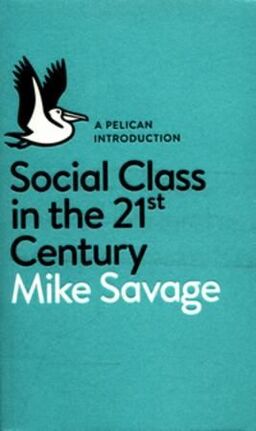*0010756161
*003NO-LaBS
*00520211116211633.0
*007t
*008181114s2015 xx er 0 eng d
*009 cam 1
*019 $bl
*020 $a978-02-410-0422-7$qh.
*0243 $a9780241004227
*035 $a(NO-LaBS)11473534(bibid)
*035 $a(NO-OsBAS)150304501
*040 $bnor
*08204$a305.50941$223$qNO-OsBAS
*090 $c305.5094$dSAV
*1001 $aSavage, Mike$_30649900
*24510$aSocial class in the 21st century$cMike Savage
*260 $aLondon$bPelican$c2015
*300 $a449 s.$bill.$c19 cm
*336 $atekst$0http://rdaregistry.info/termList/RDAContentType/1020$2rdaco
*337 $auformidlet$0http://rdaregistry.info/termList/RDAMediaType/1007$2rdamt
*338 $abind$0http://rdaregistry.info/termList/RDACarrierType/1049$2rdact
*4901 $aA Pelican introduction
*5208 $aWhy does social class matter more than ever in Britain today? How has the meaning of class changed? What does this mean for social mobility and inequality? In this book Mike Savage and the team of sociologists responsible for the Great British Class Survey look beyond the labels to explore how and why our society is changing and what this means for the people who find themselves in the margins as well as in the centre. Their new conceptualization of class is based on the distribution of three kinds of capital - economic (inequalities in income and wealth), social (the different kinds of people we know) and cultural (the ways in which our leisure and cultural preferences are exclusive) - and provides incontrovertible evidence that class is as powerful and relevant today as it's ever been.
*65004$aKlassedeling$_16590200
*65007$aLønninger$9nob$2Bokbasen AS$_30241700
*65007$aSosial lagdeling$9nob$2Bokbasen AS$_30650100
*65007$aSosiale grupper$2Bokbasen AS$_16125700
*651 7$aStorbritannia$9nob$2Bokbasen AS$_30359500
*830 0$aA Pelican introduction$_27886600
*85641$amedia.boknett.no$uhttps://media.boknett.no/objects/01/45/150304501/productimage_ORG_fda2dc00d7343e81da6a13082a1c7b250576cbf2.jpg$nBokbasen, Oslo$qimage/jpeg
^
